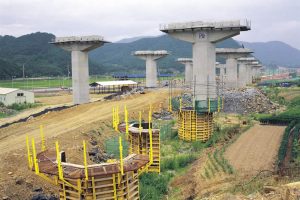

Anti-Corruption Programme for Funders
Aid agencies, multi-lateral development banks, commercial banks, export credit agencies, guarantors and insurers (“funders”) play a central role in infrastructure development, whether by way of providing general budget support to a public sector body, or by providing funding, insurance or guarantees for individual projects.
In doing so, funders face the risk of incurring criminal and civil liability for corruption through the activities of their personnel and their business associates. In addition, there is the risk that the funds which they provide will be wholly or partially lost due to corruption, or be used for corrupt purposes. Involvement in a corrupt project will also result in reputational risk for the funders.
To minimise these risks, funders should take anti-corruption action by implementing an effective programme to prevent, detect and deal with corruption within their own organisation, in their dealings with their business associates, and in the projects funded by them.
Because of their role in providing funding, funders can exercise significant leverage over infrastructure development. They have, therefore, a particularly important role in ensuring that adequate anti-corruption measures are implemented in relation to the provision and management of the financing for a project, and in relation to project tendering and execution.
GIACC in this section provides outline recommended actions for funders to help reduce the risk of corruption. Links are provided to other GIACC web-pages which provide more detailed recommendations.
Anti-Corruption Programme
- The funder should implement an organisational anti-corruption programme designed to prevent, detect and deal with corruption in relation to the funder’s activities. (See Anti-Corruption Programme for Organisations which provides requirements, supporting guidance and templates for such a programme).
- The funder should provide finance, guarantees or insurance in relation to an infrastructure project only if the organisation which is developing and/or owns the project (“project owner”) takes the following steps:
- Implements an organisational anti-corruption programme designed to prevent, detect and deal with corruption in relation to the project owner’s activities. (See Anti-Corruption Programme for Organisations which provides requirements, supporting guidance and templates for such a programme).
- In respect of a major public sector project, implements a project anti-corruption programme designed to prevent, detect and address corruption in relation to the project. (See Project Anti-Corruption System which provides requirements, supporting guidance and templates for such a programme).
- Ensures that all contractors, consultants, suppliers and other organisations which bid for project contracts over a reasonable minimum value threshold are only permitted to bid for such contracts if they can provide sufficient proof that they have implemented an organisational anti-corruption programme designed to prevent, detect and deal with corruption in relation to their activities on the project. (See Anti-Corruption Programme for Organisations which provides requirements, supporting guidance and templates for such a programme.
- Where a funder is providing funding to a project, it should take reasonable steps to ensure that:
- the project owner has implemented fair and transparent procurement controls in relation to the project
- payments which are due to contractors, consultants, suppliers and other organisations working on the project are paid by the project owner in full and on time.
- The funder should:
- Publicly disclose that it is the funder for the relevant project.
- Publicly encourage organisations and individuals involved in the project, and members of the public, to report matters of concern relating to the project in a confidential manner to an appropriate senior manager of the funder, or appropriate third party.
- Report allegations of corrupt practices in relation to the project to the authorities, and to any applicable trade or professional association.
Updated on 10th April 2020
© GIACC